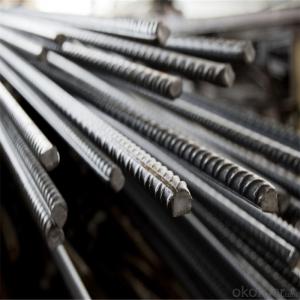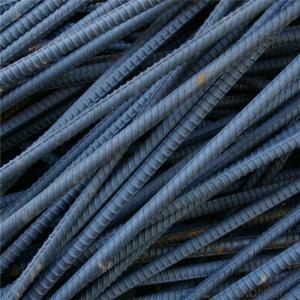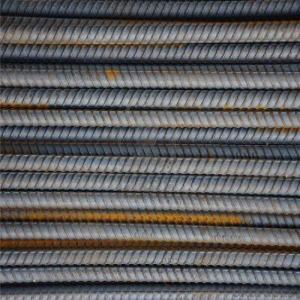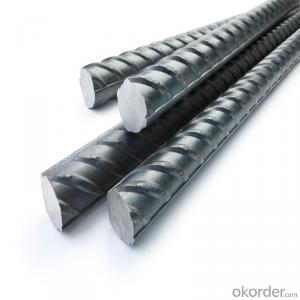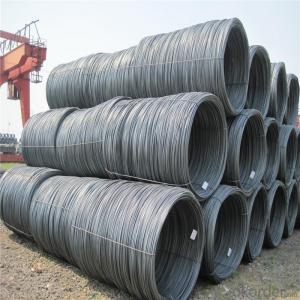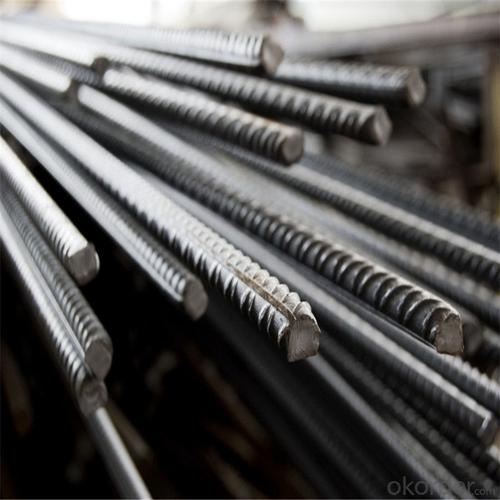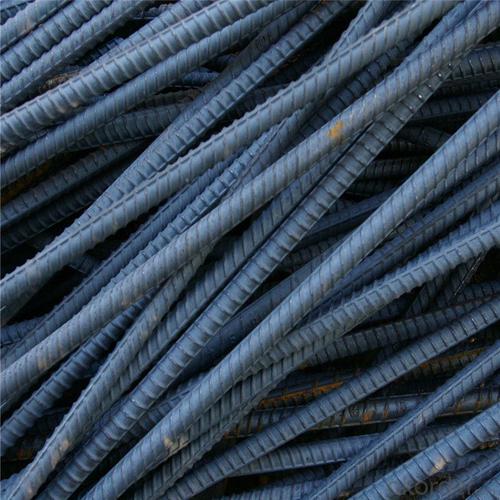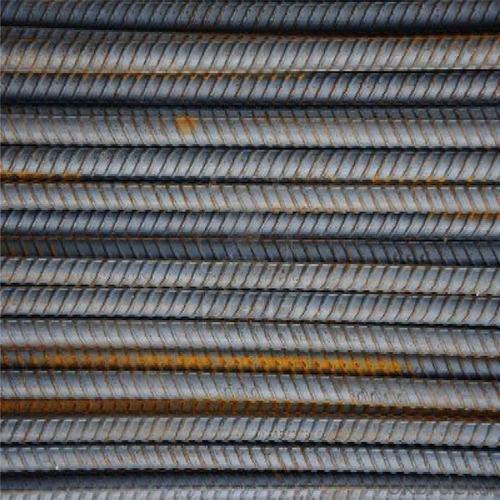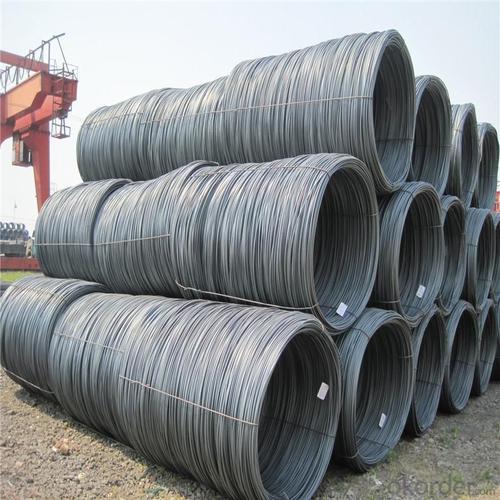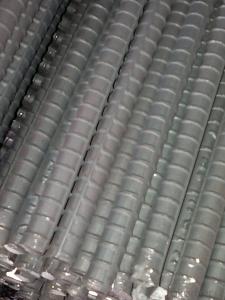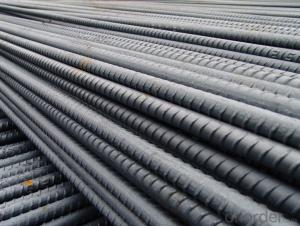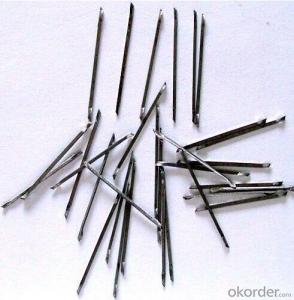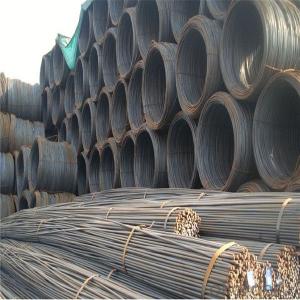Construction Reinforcing Steel
- Loading Port:
- Tianjin
- Payment Terms:
- TT OR LC
- Min Order Qty:
- 170 m.t.
- Supply Capability:
- 500000 m.t./month
OKorder Service Pledge
OKorder Financial Service
You Might Also Like
Specification
Construction Reinforcing Steel
Description of Construction Reinforcing Steel
1, Diameter: 5.5mm-10mm Construction Reinforcing Steel
10m- 40mm Construction Reinforcing Steel
2, Length: 6m, 9m, 12m or customized
3, Standard: GB, ASTM, AISI, SAE, DIN, JIS, EN
OEM technology - send detailed technical parameters for accurate quotation.
2, Produce Process: smelt iron - EAF smelt billet - ESR smelt billet -
hot rolled or forged to get the steel round bar and plate
3, Heat Treatment: annealing, normalizing, tempering, quenching
4, Surface Treatment: Black
5, Quality Assurance: We accept third party inspection for all orders.
Chemical Composition of Construction Reinforcing Steel
Grade | Technical data of the original chemical composition(%) | |||||
Reinforcing steel bar HRB335 | C | Mn | Si | S | P | B |
≤0.25 | ≤1.60 | ≤0.80 | ≤0.045 | ≤0.045 | >0.0008 | |
Physics Capability | ||||||
Yield Strength(N/cm2) | Tensile Strength(N/cm2) | Elongation(%) | ||||
≥ 335 | ≥490 | ≥16 | ||||
Reinforcing steel bar HRB400 | C | Mn | Si | S | P | B |
≤0.25 | ≤0.16 | ≤0.80 | ≤0.045 | ≤0.045 | 0.04-0.12 | |
Physics Capability | ||||||
Yield Strength(N/cm2) | Tensile Strength(N/cm2) | Elongation(%) | ||||
≥ 400 | ≥ 570 | ≥ 14 | ||||
Products Show of Construction Reinforcing Steel
Company Information
CNBM International Corporation is the most important trading platform of CNBM group.
Whith its advantages, CNBM International are mainly concentrate on Cement, Glass, Iron and Steel, Ceramics industries and devotes herself for supplying high qulity series of refractories as well as technical consultancies and logistics solutions.


F A Q
1, Your advantages?
professional products inquiry, products knowledge train (for agents), smooth goods delivery, excellent customer solution proposale
2, Test & Certificate?
SGS test is available, customer inspection before shipping is welcome, third party inspection is no problem
3, Factory or Trading Company?
CNBM is a trading company but we have so many protocol factories and CNBM works as a trading department of these factories. Also CNBM is the holding company of many factories.
4, Payment Terms?
30% TT as deposit and 70% before delivery.
Irrevocable L/C at sight.
5, Trading Terms?
EXW, FOB, CIF, FFR, CNF
6, After-sale Service?
CNBM provides the services and support you need for every step of our cooperation. We're the business partner you can trust.
For any problem, please kindly contact us at any your convenient time.
We'll reply you in our first priority within 24 hours.
- Q: How does special steel contribute to the aerospace defense machinery industry?
- Special steel plays a critical role in the aerospace defense machinery industry by providing the necessary strength, durability, and performance required for various components and systems. Firstly, special steel alloys are used in the manufacturing of aircraft structures, such as wings, fuselage, and landing gear. These components require materials that can withstand extreme forces, temperature fluctuations, and corrosive environments. Special steel alloys possess unique properties, including high strength-to-weight ratio, excellent fatigue resistance, and resistance to corrosion, making them ideal for ensuring the structural integrity and longevity of aerospace defense machinery. Moreover, special steel is essential for producing engine components, including turbine blades, shafts, and casings. These parts operate under extreme conditions, such as high temperatures, pressures, and rotational speeds. Special steel alloys with high heat resistance, excellent mechanical properties, and good creep resistance are crucial for ensuring optimal engine performance, fuel efficiency, and reliability. In addition to structural and engine components, special steel is used in the manufacturing of various defense systems, such as missile guidance systems, radar systems, and communication equipment. These systems require materials that offer electromagnetic compatibility, high strength, and resistance to vibration and shock. Special steel alloys with specific electromagnetic properties, such as low magnetic permeability or high electrical conductivity, contribute to the efficient functioning of these systems. Furthermore, the aerospace defense machinery industry heavily relies on special steel for the production of precision tools, cutting blades, and molds used in the manufacturing process. These tools must possess high hardness, wear resistance, and dimensional stability to ensure accurate and efficient processing of complex components. Overall, special steel is a crucial enabler for the aerospace defense machinery industry as it provides the necessary strength, durability, and performance required for the demanding and often harsh operating conditions in this sector. The unique properties of special steel alloys contribute to the development of advanced and reliable aerospace defense machinery, enhancing the capabilities and safety of military and defense operations.
- Q: How does special steel contribute to the manufacturing of oil and gas equipment?
- Special steel plays a crucial role in the manufacturing of oil and gas equipment due to its unique properties and characteristics that make it suitable for the demanding conditions of the industry. Firstly, special steel is known for its high strength and durability, which is essential in the production of oil and gas equipment. Equipment such as drilling rigs, pipelines, and storage tanks are subjected to extreme pressures, corrosive environments, and harsh weather conditions. Special steel, with its superior mechanical properties, can withstand these conditions and ensure the reliable and long-lasting performance of the equipment. Additionally, special steel offers excellent resistance to corrosion and oxidation, which are prevalent in the oil and gas industry. The presence of corrosive substances and the exposure to high temperatures can cause regular steel to deteriorate quickly. However, special steel is specifically designed to resist corrosion, ensuring that the equipment remains functional and safe for use over its lifetime. Furthermore, special steel can withstand high temperatures and pressure differentials, making it suitable for applications such as heat exchangers and pressure vessels. These components are vital in various oil and gas processes, including refining and transportation. The ability of special steel to handle extreme temperatures and pressures ensures the efficiency and safety of these operations. Special steel also contributes to the manufacturing of oil and gas equipment by providing excellent weldability and machinability. This allows for ease of fabrication and assembly, reducing production time and costs. The versatility of special steel enables manufacturers to design and create complex equipment that meets the specific requirements of the oil and gas industry. In conclusion, special steel plays a crucial role in the manufacturing of oil and gas equipment by providing high strength, durability, corrosion resistance, and the ability to withstand extreme temperatures and pressures. Its unique properties ensure the reliability, safety, and longevity of the equipment, making it an indispensable material in the oil and gas industry.
- Q: Can special steel be used in marine environments?
- Yes, special steel can be used in marine environments. Special steel, such as stainless steel or marine-grade steel, is specifically designed to withstand the harsh conditions of marine environments. These environments typically involve exposure to saltwater, which can be highly corrosive for many types of materials. However, special steel is resistant to corrosion due to its high levels of chromium and other alloying elements. This makes it highly suitable for various marine applications, including shipbuilding, offshore structures, and marine equipment. Special steel offers excellent strength, durability, and corrosion resistance, making it a reliable choice for marine environments. Additionally, special steel can be further treated and coated to enhance its resistance to corrosion, ensuring its longevity and performance in marine conditions.
- Q: How is tool and die steel used in the manufacturing of molds and dies?
- Tool and die steel is an essential material used in the manufacturing of molds and dies due to its high strength, toughness, and wear resistance properties. It is used to create precise and durable molds and dies that are capable of withstanding the high pressures and temperatures involved in the manufacturing process. This steel is carefully designed and machined to produce intricate shapes and forms required for various industries such as automotive, aerospace, and electronics. Tool and die steel ensures the longevity and accuracy of molds and dies, leading to efficient and high-quality production in manufacturing processes.
- Q: How does special steel contribute to the manufacturing of industrial machinery?
- Special steel plays a crucial role in the manufacturing of industrial machinery by providing superior strength, durability, and resistance to extreme conditions. It allows for the construction of components that can withstand heavy loads, high temperatures, and corrosive environments, ensuring the reliability and longevity of the machinery. Additionally, special steel's unique properties enable the production of precise and intricate parts, enhancing the overall performance and efficiency of industrial machinery.
- Q: What are the different casting grades of special steel?
- Special steel is a classification of steel that is specifically designed to possess certain exceptional properties, making it suitable for specialized applications. Within the realm of special steel, there are several different casting grades available, each with its own unique characteristics and applications. One common casting grade of special steel is known as stainless steel. This grade contains a high percentage of chromium, which gives it excellent corrosion resistance properties. Stainless steel is widely used in applications where resistance to oxidation, acids, and other corrosive elements is critical, such as in the production of kitchen utensils, medical instruments, and chemical processing equipment. Another casting grade of special steel is tool steel. This grade is specifically formulated to exhibit exceptional hardness, wear resistance, and toughness. Tool steel is commonly used in the manufacturing of cutting tools, dies, molds, and other tools that require high strength and durability. High-speed steel is another important casting grade of special steel. This grade is known for its exceptional heat resistance and ability to maintain its hardness even at high temperatures. High-speed steel is widely used in the production of cutting tools such as drills, taps, and milling cutters, where the material is subjected to high temperatures generated by the cutting process. Furthermore, there are casting grades of special steel that are specifically designed for use in extreme temperature environments. These grades, such as heat-resistant steel, are formulated to maintain their strength and integrity even at elevated temperatures. Heat-resistant steel is commonly used in applications such as furnace components, exhaust systems, and gas turbines. In conclusion, the different casting grades of special steel offer a wide range of properties and applications. Stainless steel provides excellent corrosion resistance, tool steel offers exceptional hardness and toughness, high-speed steel is known for its heat resistance, and heat-resistant steel is designed to withstand extreme temperatures. These grades of special steel play a crucial role in various industries where exceptional properties are required for specific applications.
- Q: What are the different machining techniques for special steel?
- There are several machining techniques that can be used for special steel, depending on the specific requirements and characteristics of the steel. Some common machining techniques include turning, milling, drilling, grinding, and broaching. Each technique has its own advantages and is chosen based on factors such as the desired shape, size, and surface finish of the steel component. Additionally, advanced techniques like electrical discharge machining (EDM) and laser cutting can be employed for special steel, offering precise and efficient machining solutions.
- Q: How is electrical steel used in the manufacturing of transformers?
- Electrical steel, also known as silicon steel, is crucial in the manufacturing of transformers due to its unique magnetic properties. It is used to construct the core of the transformer, which is responsible for transferring electrical energy from one circuit to another. The high magnetic permeability and low core losses of electrical steel help enhance the efficiency and performance of the transformer by reducing energy losses during the conversion process.
- Q: How does special steel contribute to product innovation?
- Product innovation is greatly influenced by the use of special steel, which offers various advantages. Firstly, special steel provides superior mechanical properties, including high strength, hardness, and wear resistance. These qualities permit designers and engineers to develop innovative products that can endure higher levels of stress, function in extreme conditions, and have extended lifespans. An excellent illustration of this is the aerospace industry, where special steel is frequently employed to manufacture lightweight yet robust components that enhance fuel efficiency and overall aircraft performance. Furthermore, special steel can be customized to possess specific attributes such as corrosion resistance, heat resistance, or magnetic properties. This enables the creation of groundbreaking products capable of operating in demanding environments like marine structures, power plants, or electronic devices. For instance, in the medical field, special stainless steel alloys are extensively used to produce implants and surgical instruments that are biocompatible, long-lasting, and resilient to rigorous sterilization processes. Additionally, special steel can be fabricated with precise dimensions and tolerances, facilitating intricate and complex designs. This fosters product innovation by allowing the production of intricate components such as gears, bearings, or turbine blades, which necessitate high precision and reliability. These advanced designs have the potential to enhance the efficiency, performance, and overall functionality of various products, ranging from automotive engines to wind turbines. Moreover, the versatility of special steel permits its combination with other materials, such as polymers or composites, to create hybrid products with unique properties. This opens up avenues for innovation in various industries, including automotive, construction, and consumer electronics. For example, special steel-reinforced concrete structures exhibit increased robustness and durability, while special steel-reinforced polymers enhance the strength and impact resistance of lightweight components. In conclusion, special steel contributes significantly to product innovation by offering enhanced mechanical properties, tailored characteristics, precise dimensions, and compatibility with other materials. These capabilities empower designers and engineers to develop innovative products with improved performance, durability, and functionality, thereby driving advancements across diverse industries.
- Q: What are the casting methods for special steel?
- There are several casting methods used for special steel, including investment casting, sand casting, and centrifugal casting. Investment casting involves creating a wax pattern of the desired shape, which is then coated in ceramic and melted away, leaving a cavity that is filled with molten steel. Sand casting involves making a mold from a mixture of sand and a binder, and pouring molten steel into the mold cavity. Centrifugal casting utilizes centrifugal force to distribute molten steel into a mold, resulting in a more uniform casting with fewer defects.
Send your message to us
Construction Reinforcing Steel
- Loading Port:
- Tianjin
- Payment Terms:
- TT OR LC
- Min Order Qty:
- 170 m.t.
- Supply Capability:
- 500000 m.t./month
OKorder Service Pledge
OKorder Financial Service
Similar products
Hot products
Hot Searches
Related keywords
